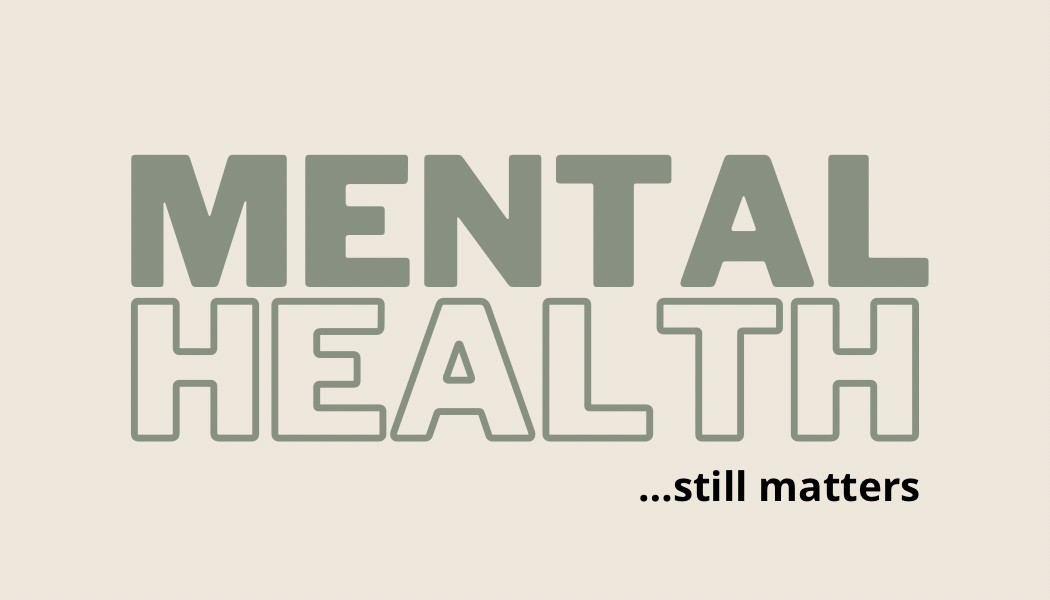It’s easy to forget mental health when you are hyper-focused on a separate health crisis. Your mental health still matters, though.
Experiencing a health challenge can be isolating. At 24, I found myself feeling alone in my health journey. I had sympathetic support but no one could truly understand the concerns and fears that roamed around my mind. A typical girl in her mid-twenties attends baby showers, discusses a hot date with her friends, and chats through the grind at work. It’s not common for people my age to find themselves discussing life-altering surgical options or learning how to decipher lab results.
I would never wish this journey on anyone else, but I did long for empathetic connection. Someone who could tell me, from their own experience, that this will turn out okay. Ultimately, that someone had to be me. I had to iron out how I would accept this season of my life with grace, confidence, and mettle (see what I did there?). I didn’t know how the unknowns would shake out but I had the choice of how I’d face it all.
In order to find the energy and motivation to get through, I had to push myself to figure out ways to stay motivated and conscious of my mental health. Mental health contributes to the outlook and perspective of a health journey.
I learned a few things that helped me remain positive and find hope along my journey. Here’s what I found:
- Resting: Sleeping was difficult so I had to find creative ways to relax and recharge. I found the most rest when I sat outside. I’d turn off my computer and phone for a few hours in the evenings and just melt into the air. I’d have conversations with my family, read, or just sit in silence. The open sky made my world feel fuller and more optimistic.
- Laughing: Yes, this sounds silly but it’s true. I’d find any opportunity to laugh. I’d laugh at things as simple as a funny video on Facebook or my dogs’ zoomies. As I looked for reasons to laugh, it became easier to find joy. The accumulation of laughter increases endorphins and can improve your immune system. It literally (scientifically) makes you healthier and happier. I’m not saying that it will cure health issues but I can tell you that it makes the journey easier. We can always choose the lens through which we see things; I chose humor.
- Dreaming: I pushed myself to think about the future throughout my entire journey. How will I share this story? What will I be doing in 10 years? What will my new lifestyle look like? Instead of dwelling on the circumstances that were happening, I romanticized all the good to come. Instead of, “I have to be the girl with fake hips the rest of her life,” I found myself saying, “I get to be the girl with titanium hips who will finding meaning in the pain and strength in the scars.”
- Hydrating. Staying hydrated is so incredibly important to any health journey. I used to be terrible about drinking water but now my water bottle doesn’t leave my side. During a health crisis, you can often feel defeated about so many physical inabilities – but meeting your water intake goals? You can do that. It’s both empowering to your mind and your physical body.
- Creating. Prior to this journey, I loved sitting at my table with a paint brush for hours. Due to the pain, I wasn’t physically able to do that anymore. How could I still find a creative outlet? I came across pour painting. The image below shows my first pour paint canvas. It was quick to do and allowed me to connect with my creative side. I also took up journaling and writing (where most of the content on this website is coming from).

My first pour painting. It took about 20 minutes from start to finish. Such a fun way to get creative.
None of these ideas will remove the pain, stress, or chaos of a health crisis – but they might help you feel more in control. I also recommend talking with a therapist during a challenging health journey. They can help you unpack the trauma of the health crisis and find solutions for better mental health. I know it means one more appointment each week, but it’s worth it.


2 thoughts on “How To Prioritize Your Mental Health During A Health Crisis”
Comments are closed.